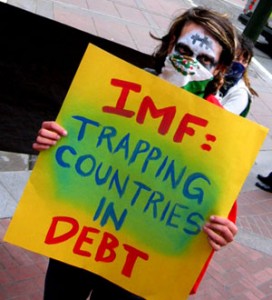
* IMF program with Malawi “went off track” – IMF VP
* Malawian officials seeking to renegotiate frozen aid
By Pascal Fletcher
WASHINGTON, Sept 21 (Reuters) – The International Monetary
Fund is ready to discuss working with Malawi to try to get its
stalled IMF program back on track, the fund’s vice-president
for Africa Antoinette Sayeh said on Wednesday.
The IMF had approved a 3-year $79.4 million facility for
the small southern African state in February last year but the
program was hit by the government’s initial failure to devalue
the Malawian kwacha and implement public finance management
reforms, among other issues.
Malawi, which subsequently devalued the kwacha currency in
August, has relied heavily on foreign donor funds. But former
colonial ruler Britain, its biggest bilateral donor, suspended
aid worth $550 million in May over a diplomatic spat.
Malawian officials have said the country will seek to
renegotiate frozen aid at the meetings in Washington this week
of the IMF and the World Bank.
Sayeh told Reuters the fund would be holding discussions
with the Malawian delegation about the stalled IMF program.
“The program went off track … in a significant way and we
certainly want to be helpful to Malawi in trying to get them to
return it to track,” she said.
President Bingu wa Mutharika has faced street riots by
protestors who accuse him of ignoring civil liberties and
damaging the economy, and 20 anti-government demonstrators were
killed by security forces during protests in July.
Sayeh said the IMF was ready to listen to proposals from
the Malawian government.
“The situation has certainly deteriorated in a big way and
Malawi also has a lot of work to do in restoring its
relationships with key donors, which is an important task,” she
said.
But she said it was too early to give further details of
the discussions. “It’s quite early days, they’ve just arrived
and we’re just starting to talk to them,” Sayeh said.
“Malawi of course had in the past made very good progress.
… We certainly want to help them to continue to make that
progress,” she added.
(Reporting by Pascal Fletcher; Editing by Richard Chang)